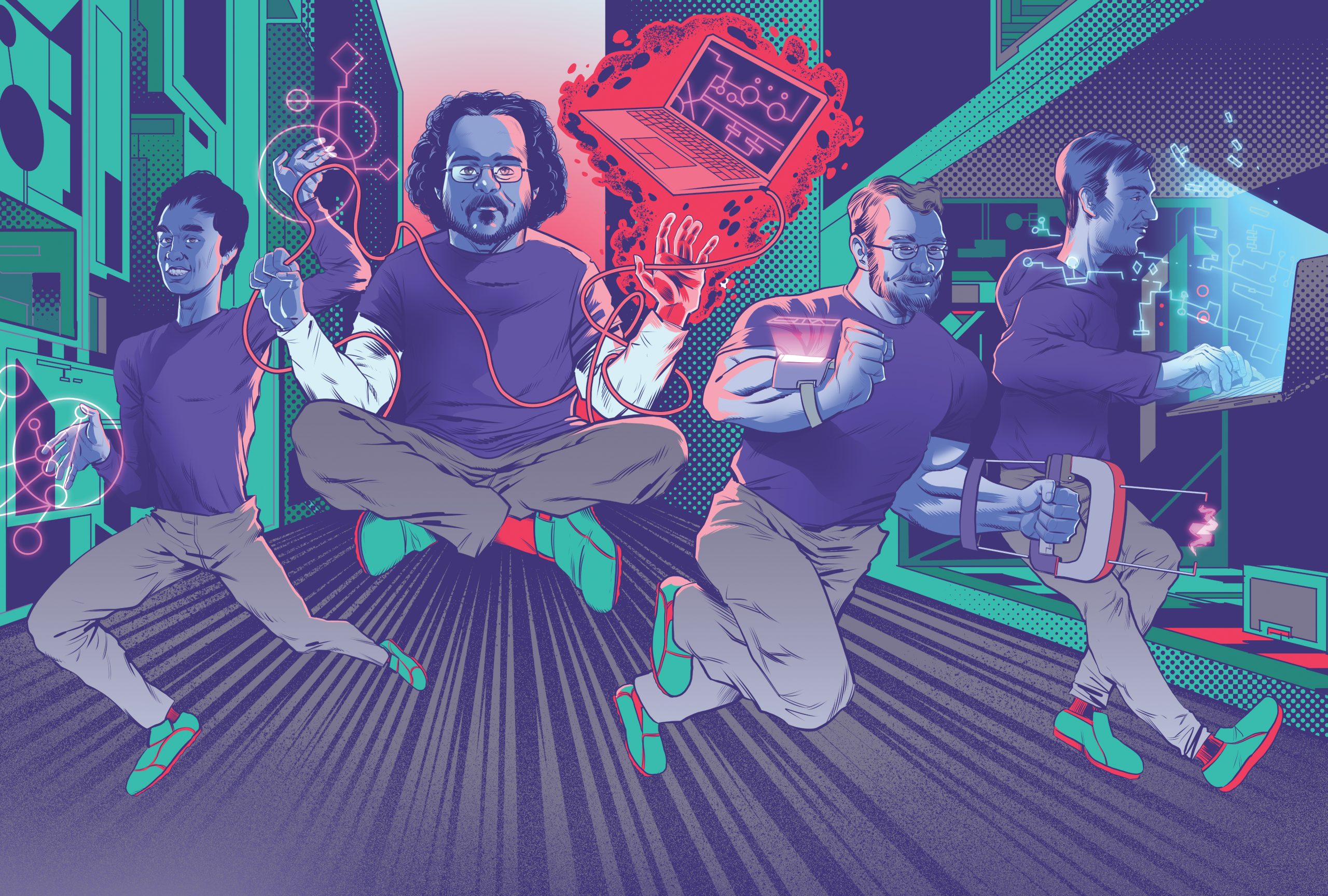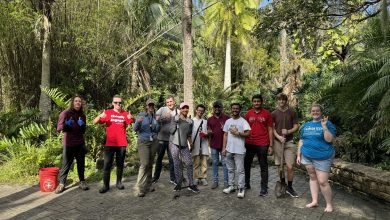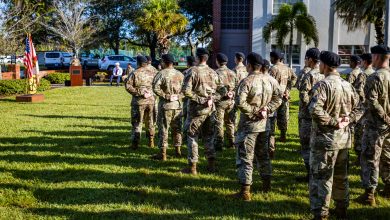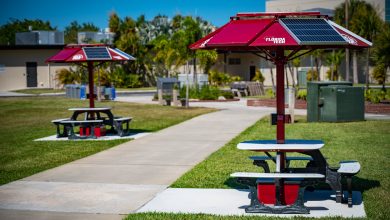Students Having One Hack of Ride In The World of Competitive Inventing
By Stephanie R. Herndon ’07
The term “hacking” used to conjure visions of nefarious nerds breaking into computer systems with fiendish intentions. Today, “hacking” has a new meaning. “Life hacks” are innocent shortcuts that save people time and money. And “hackathons” are problem-solving events that ask participants to invent programs and products designed to help, not harm.
First popping up in the late ’90s as early dot-coms and tech startups sought answers to their toughest challenges, hackathons have gained popularity among commercial businesses, nonprofit organizations and universities, many of which host collegiate competitions and sponsor their own student teams.
How it works: A host college establishes a hackathon’s date, time, duration, theme and challenges. Challenges typically center around a particular need of a sponsoring company or the novel application of a specific piece of hardware or software. Think “Use blank to do something that has never been done before,” for example.

Teams get a set amount of time—around 24 to 36 hours—to come up with an idea and develop a prototype. From there, it’s a fast-and-furious, caffeine-fueled race to the finish. Teams present their ideas, hoping their cleverness, ingenuity and execution earns the attention and praise of hackathon judges.
Roots of Zero
Florida Tech’s all-student hackathon team, Team Zero, got its start in 2016, when the university sent Muntaser Syed ’17 M.S. and Chris Woodle ’18 to compete in the Institute of Electrical and Electronics Engineers (IEEE) Southeast Conference’s robotics competition. The small but mighty team took first place—a first for the university.
The following year, Syed and Woodle nabbed the second-place title in the IEEE conference’s software competition.
Team Zero doubled in size in April 2017, when Syed and Woodle linked up with fellow IEEE members Chris Wille and Peter Tarsoly to compete in the NASA Space Apps Challenge. They built Cassandra, a real-time, interactive disaster-prediction engine. Team Zero won second place overall, as well as best use of hardware and the people’s choice award. That earned them entry into the global finals.
“With Cassandra, we got a lot of popularity, not only among the hackathon attendees, but also among the Orlando tech community, which gave us a lot of positive feedback,” Syed says. “This opened our eyes to the potential we had to accomplish very cool engineering projects given a very short timespan.”
Meet the Team

Propelled by the momentum of their successes and armed with new skills gained in the process, Team Zero cemented its reputation as an up-and-coming force to be reckoned with at the University of Central Florida’s Knight Hacks competition in October 2017. The challenge? Create something new. The criteria? Creativity, originality and completeness.
Team Zero answered the Knight Hacks challenge with Tweetmaps, a machine learning app that analyzes tweets about hurricane damage and visualizes the data on a map.
They later revised Tweetmaps so it could help people locate clean public bathrooms. Why?
“For fun,” Syed says. “Because we could.”
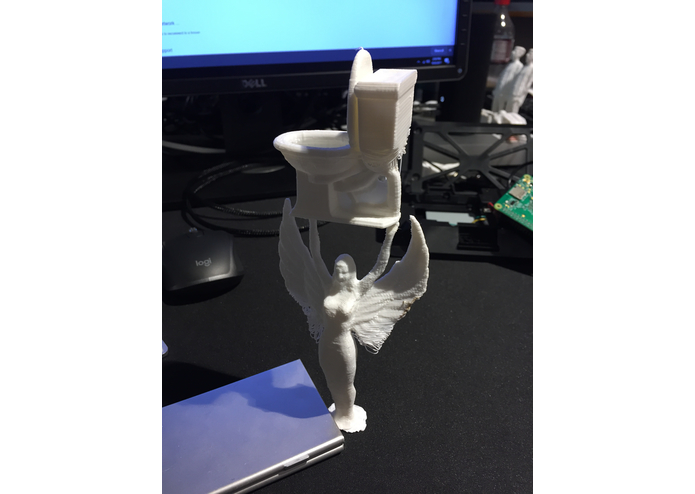
Products of Zero
Since Knight Hacks 2017, Team Zero has attended more than 20 hackathons and has taken home so many different awards, it’s been hard for the team to keep track of them all.
“We’ve won so many prizes, I don’t even know what we’ve won at this point,” Syed says. He estimates the total at 67—between two and four per competition.
Team Zero won first place overall at University of Miami’s UHack 2017, which had an “audio technology” theme. There, they created Vamped, a “virtual amp” system that regulates sound, volume and ambient noise based on its user’s mood.
“I think the judges were impressed by how we used an electroencephalogram to correlate brainwave patterns to music,” Woodle says.
At MakeHarvard in 2018, Team Zero members created Pillzy, a medication-tracking system to help users avoid under- or overdosing.
“We built it with the elderly, Alzheimer’s patients and drug addicts in mind,” Woodle explains. “It is activated by Amazon Echo voice commands and uses facial recognition authentication and touch verification to dispense medications only on schedule.”
Pillzy earned Team Zero awards for best use of RightHand Labs TakkStrips (tactile array sensors), best use of Amazon Web Services and most likely to become a unicorn. (A “unicorn” is a startup company valued at more than $1 billion.)
At the 2018 UC Health Hack in San Diego, Team Zero built ClearPathAR, a wayfinding app to help patients and volunteers navigate hospitals. Team Zero says the event’s sponsors were most impressed with the product’s potential for commercial use, which earned them second place overall as well as the award for best use of machine learning.
Back in Cambridge for HackHarvard 2018, Florida Tech’s hacker crew had an idea to revolutionize the insurance industry by adjusting premiums in the moment based on user data such as unsafe driving behavior (for auto insurance) or strenuous physical activity (for health insurance). This brainchild, called Insura-ledger, won Team Zero best financial hack, best use of Kensho Knowledge Graph API and best use of blockchain.
The Power of Zero
Despite their successes, the members of Team Zero remain firmly grounded. For them, hacking is more about friendship and growth than it is fortune and glory.
“I think the idea of collaboration has moved society forward in every age. Even with cavemen—if you hunt alone, you could hunt a rat to eat; if you hunt together, you can hunt a mammoth,” Syed says. “With working together, the ultimate outcome will always be better.”
Woodle values the career experience he gains at each event, particularly when corporate leaders get involved in the challenges.
“You’re working one-on-one with professionals in your field, learning how to present yourself, getting a feel for what it’s like to work for different companies,” he says.
“At these events, you interact with companies and the engineers who actually build the products you’re using,” Syed adds. “You talk to them, ask them questions—it’s a unique experience you’d normally get only if you’re in the company.”
Hackathon networking and collaboration have led to more than a dozen pre-graduation job offers for the members of Team Zero. But Syed, Woodle, Wille and Tarsoly have no immediate plans to accept any offers of employment. Nor are they currently pursuing commercialization for any of their winning ideas.
“We’re not looking to make an immediate financial gain,” Syed says. “The main point is to collaborate with likeminded people and to learn.”
For now, the heroes of Team Zero plan to complete their degrees while competing in as many hackathons as their schedules will allow. Oh, and possibly starting a software development and rapid prototyping company together. They wouldn’t be Team Zero—or Panthers, for that matter—if they weren’t already hacking a bright future.
This article was the feature story in the 2019 Winter Edition of the Florida Tech Magazine. Click below to read the full edition.
Team Zero Update
Since the original article published in Florida Tech Magazine’s Winter 2019 issue, Team Zero has continued to dominate the hackathon scene.
Fall 2018
- Best use of Authorize.net and Best use of DocuSign API at University of Pennsylvania’s PennApps, one of the oldest running collegiate hackathons
- Best artificial intelligence and top hack out of 100 teams at HackNYU, the largest New York hackathon held simultaneously across all NYU campuses worldwide
- Best use of Authorize.Net and Best use of Clarifai’s API weekly challenge at HackNY
- MATRIX Creator challenge and best use of Authorize.Net at Florida International University’s ShellHacks 2018
- Best in financial technology (FinTech) at HackHarvard 2018
- Best IoT hack using a Qualcomm device and most innovative use of unstructured data, sponsored by Mareana, during their first time competing in HackPrinceton.
Spring 2019
- Best overall at the University of Miami’s UHack.
- Best IoT hack using a Qualcomm device at Knight Hacks 2019
- Most ingenuitive hack and best IoT hack using a Qualcomm device at Clemson University’s CUhackit
- Most popular hack at MakeHarvard
- Best in aviation hack, awarded by Collins Aerospace, at Embry-Riddle’s HackRiddle
- Best accessibility, awarded by JP Morgan, and best use of Google Cloud Platform, awarded by Google, at HackNYU
Team Zero is rounding out the year with a few more hackathons, so stay tuned.

